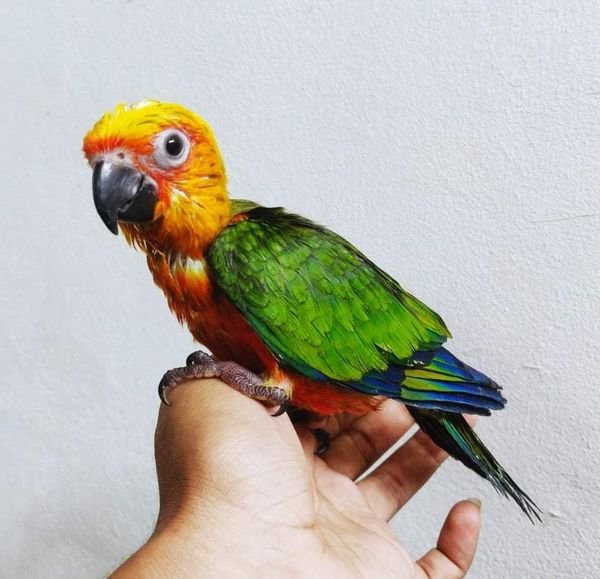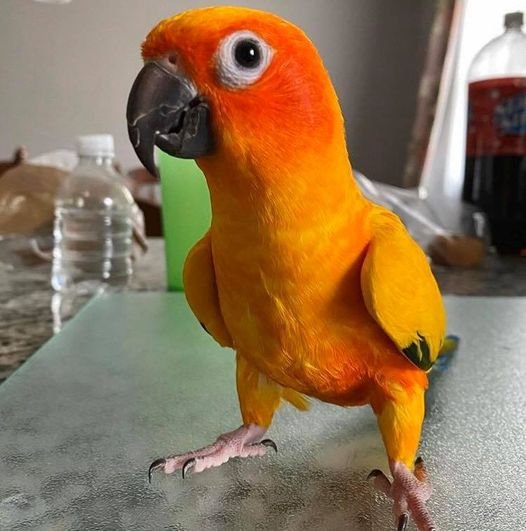Description
Sun conures
Origin and History
The sun conure is native to northeastern South America, including Venezuela, northern Brazil, and Guyana. Found mostly in inland tropical habitats, the sun conure also may inhabit dry savanna woodlands and coastal forests. They usually inhabit fruiting trees and palm groves.
The population of this currently endangered bird is dwindling rapidly due to loss of habitat and trapping for the pet trade. Roughly 800,000 are trapped each year, despite the U.S. import ban of 1992 and European Union ban in 2007.2
Temperament
The sun conure is a playful, amusing bird that enjoys athletic tricks. These birds are smart, interactive, and easily trained. In general, it is a very affectionate and cuddly bird that is gentle to all members of the family as long as it’s treated well. The bird is not without assertiveness, though; it can turn aggressive suddenly if provoked.
This parrot can go through nippy phases that can be hard on children as well as on adults. Even the tamest pet bird can get startled and bite. This is not a true reflection of its personality; it’s a natural reaction.
Like all parrots, sun conures are social birds that need a considerable amount of interaction with their human owners to be happy. They are naturally playful and affectionate when they get the attention they need, making them uniquely suited for those who want a bird for steady companionship.
Keep in mind that the sun conure is extremely loud, capable of emitting ear-piercing screams. Its loud, shrill call is used in the wild to bring attention to important situations from miles away. Likewise, this bird can stand in as an excellent version of a watchdog for your home.
Speech and Vocalizations
In captivity, this bird’s loud, harsh calls may elicit return calls from angry neighbors. This bird is not suitable for apartment or condo dwellers. You can’t expect to “train away” their calls, but you can train them from early on to curb excessive screaming. They do express excitement and fear with shrill screams. Conures are not shy birds and will let you know vocally if they are bored or if their needs are neglected.
Sun conures are not known for their talking ability, but some birds demonstrate an uncanny ability to mimic other types of sounds, such as doorbells, microwave buzzers, and telephone chimes.






Reviews
There are no reviews yet.